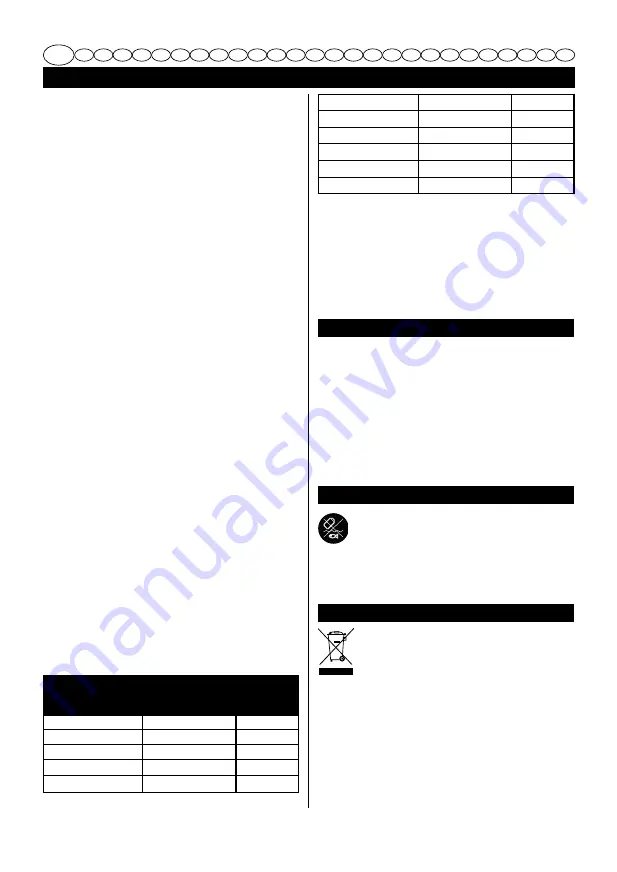
EN
DE ES IT FR PT NL RU FI SV NO DA PL CS SK SL HR HU RO BG EL AR TR HE LT LV ET
English (Original Instructions)
5
Apply only light pressure to the machine so that it runs
at a higher stroke rate and high material removal is
achieved.
Fine Sanding
Attach a sanding sheet with fine grain.
By lightly varying the application pressure or changing
the orbital stroke rate, the sanding plate stroke rate can
be reduced whereby the orbital action is maintained.
With moderate pressure, move the machine in a circular
pattern or alternately in lengthwise and crosswise
directions over the workpiece. Do not tilt the machine
to avoid sanding through the workpiece (e. g. when
sanding veneer).
After finishing the working procedure, switch the power
tool off.
Polishing
For the polishing of weathered paint or buffing out
scratches (e.g., acrylic glass), the machine can be
equipped with appropriate polishing accessories
such as lamb’s wool bonnet, polishing felt or sponge
(accessories).
Select a low orbital stroke rate (level 1 – 4) when
polishing in order to avoid heating up the surface
excessively.
Apply the polish onto a somewhat smaller surface than
you intend to polish. Work the polishing agent in with
a suitable polishing tool applying it crosswise or with
circular motion and moderate pressure.
Do not allow the polishing agent to dry out on the
surface, otherwise the surface can become damaged.
Do not subject the surface to be polished to direct
sunlight.
Clean the polishing accessories regularly to ensure
good polishing results. Wash out polishing accessories
with a mild detergent and warm water; do not use paint
thinner.
Application Table
The data in the following table are recommended
values.
The most favourable combination for working is best
determined by practical testing.
Application
Grain Size
(course sanding/
fine sanding)
Oscillation
Rate
Roughening varnish
180/240
2/3
Touching up varnish
120/240
4/5
Removing varnish
40/60
5
Softwood
40/240
5/6
Hardwood
60/240
5/6
Veneer
180/240
2–4
Aluminium
80/240
4/5
Steel
40/240
5
Derusting steel
40/120
6
Stainless steel
80/240
5
Masonry, stone
80/240
5/6
Recommendations for Optimal Handling of the
Battery
Protect the battery against moisture and water.
Occasionally clean the venting slots of the battery using
a soft, clean and dry brush.
A significantly reduced working period after charging
indicates that the battery is used and must be replaced.
Observe the notes for disposal.
MAINTENANCE AND CLEANING
■
Before any work on the machine itself (e. g.
maintenance, tool change, etc.) as well as during
transport and storage, remove the battery from
the power tool. There is danger of injury when
unintentionally actuating the On/Off switch.
■
For safe and proper working, always keep the machine
and ventilation slots clean.
When the battery is no longer operative, please refer to
an authorised after-sales service agent for power tools.
DISPOSAL
The machine, rechargeable batteries,
accessories and packaging should be sorted
for environmentalfriendly recycling.
Do not dispose of power tools and batteries/rechargeable
batteries into household waste!
ENVIROMENTAL PRORENCTION
Recycle raw materials instead of disposing
of as waste. The machine, accessories and
packaging should be sorted for environmental-
friendly recycling.
































